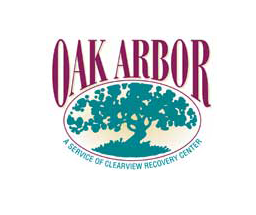Understanding the 12 Steps of NA
- By Admin
- •
- 05 Dec, 2019
- •

Narcotics Anonymous (NA) is a nonprofit group dedicated to helping people overcome addictions. The program uses 12 steps to help recovering addicts get and stay sober. When you understand the intent behind each step, it's easier to complete the program and stay clean.
Step 1: Admit That You Are Powerless Over Your Addiction
The first step is to admit that you have an addiction you can't control and that your life is difficult due to the addiction. When you admit you have a problem you need help to overcome, you set the stage for recovery.
Step 2: Believe in a Higher Power That Can Help You
The second step is the first one that addresses a higher power. It's important to understand that every individual can interpret this in their own way - you don't need to acknowledge a specific god or higher power to be successful.
Step 3: Make a Decision to Turn Your Life and Will Over to God As You Understand Him
The third step involves turning yourself over to your higher power so you can start to rebuild your life. This could be the Christian God, another deity, the Universe, or even the powers of science and nature.
Step 4: Take a Thorough and Fearless Moral Inventory of Yourself
The fourth step is one of the most difficult ones for many addicts. To complete this step, you must be honest with yourself about how your flaws and any diagnosed or potential mental illnesses have contributed to your drug problem. When you understand the reasons you turned to drugs, you're in a better position to choose healthier coping mechanisms.
Step 5: Admit Your Wrongs to God, Yourself, and Someone Else
To complete the fifth step of NA, you'll need to do some more internal digging. You'll be honest with yourself about the problems drugs have created in your life and the lives of others. You'll also need to communicate this information to another person.
Step 6: Be Ready to Have God Remove Your Character Defects
The sixth step involves preparing yourself mentally to turn yourself over to God or your personal higher power to help you in your journey to deal with your flaws in healthy ways.
Step 7: Ask Your Higher Power to Remove Your Shortcomings
The seventh step is an extension of the sixth step. You'll be honest in your prayers, meditations, or studies involving your higher power and ask for assistance to change the things that made you feel drugs were the answer to your problems.
Step 8: Make a List of All the People You Have Hurt and Be Willing to Make Amends
The eighth step is another difficult step for many addicts because it involves acknowledging the hurt your addiction has caused others.
Step 9: Make Direct Amends to People You've Hurt Wherever Possible, Except When to Do So Would Hurt Them or Others
As you complete the ninth step, you'll reach out to the people whose lives have been negatively affected by your addiction and ask for forgiveness. It's important to only reach out to people who are prepared to hear from you so you don't cause additional pain.
Step 10: Continue to Take a Personal Inventory and Admit When You Were Wrong
The tenth step is the ongoing process of being honest with yourself about your feelings and struggles and admitting to your mistakes so you can try to do better.
Step 11: Through Prayer and Meditation, Seek to Improve Your Conscious Contact With God As You Understand Him
This step is also ongoing - you'll continue to commune with your higher power so you can stay strong in your resolve to remain sober.
Step 12: Carry the Message of Hope and Healing to Other Addicts
The final step means you'll work to bring the message of hope and recovery to other addicts. This might involve asking other addicts to come to a meeting or even becoming an NA mentor yourself to help people who are at the beginning of the recovery process.
If you or someone you love is suffering with addiction, contact Oak Arbor today to learn more about our residential and outpatient treatment programs.





